
As the Trails series' ending is now in sight, Nihon Falcom prepares to tackle the impossible
On January 15, 2026, The Legend of Heroes: Trails beyond the Horizon launches in North America and Europe. Usually, a Falcom title receiving a western release isn't a notable occurrence; but that's not the case this time. After nearly 15 years, every entry in the long-running RPG series will have been released in the west; for the first time, western players will stand on equal footing with those in Japan.
Recently we had the chance to sit down and chat with the President of Nihon Falcom Toshihiro Kondo about the state of Trails, and how being the stewards of such a long-running odyssey has impacted Falcom as a whole - how the realities of working on more than a dozen entries in a series that now spans somewhere to the tune of a thousand hours of playtime necessitates the sort of management that bears more resemblance to studios developing MMORPGs, rather than singleplayer titles, and how it defines a company like Falcom with such a storied history of other IPs.
When the Trails series first began getting localized under XSEED Games in 2011, Kondo didn't mince words; he didn't really expect that there would ever come a time when the entire series would be represented on a global scale. He wasn't sure exactly how popular a series like Trails could end up being outside of Japan, and especially in the west.
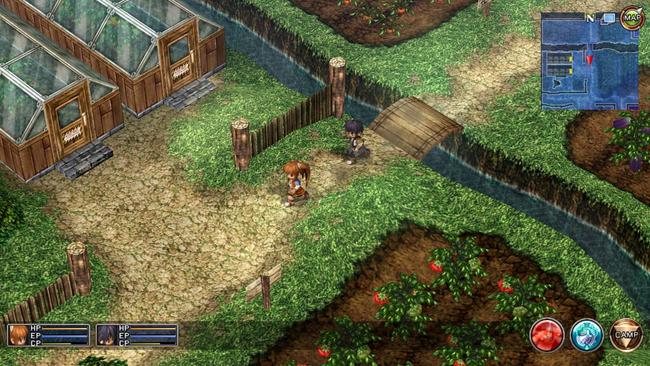
"Truthfully, when we first started the series 20 years ago - we had the impression that JRPGs, or at least the types of games we make, weren't as popular in the west compared to Japan. This last decade or so we've seen a level of appreciation and love of our titles from fans in the west - and it's gratifying to finally have all of our fans on the same page, no matter where they live." While Kondo and Falcom were happy with that success and recognition, it was a bittersweet feeling knowing how long players outside of Japan were left waiting for titles. The sheer size of the gap was never lost on the company; the fact that one day they might bridge it was a lofty goal they could only ever aspire to reach.
"It's not something I thought would ever happen, at least not easily."
When The Legend of Heroes: Trails beyond the Horizon released in Japan last year as Kai no Kiseki -Farewell, O Zemuria-, Japanese speaking fans were greeted with a clear message; while the Trails series has been ongoing for 20 years, we're finally reaching the endgame. While the long localization waits may soon end up being a thing of the past, that has seen the gradual rise of a different problem that's far from exclusive to the west - with 14 games staring back from behind them, how exactly can they manage juggling everything that's come before?
In the past, Kondo had stated that Falcom had always made efforts to make new arcs be suitable as starting points for players to jump in; yet, that can only do so much when even by their own admission the narrative demands a certain level of interaction between the stories that the series has told before, and the overarching tale at the heart of the franchise. Like many things when it comes to Trails, it's a hard balance to reach - and one they even struggle with on a regular basis. Especially with the average volume of each release having trended to longer and longer over the course of the series' chronology.
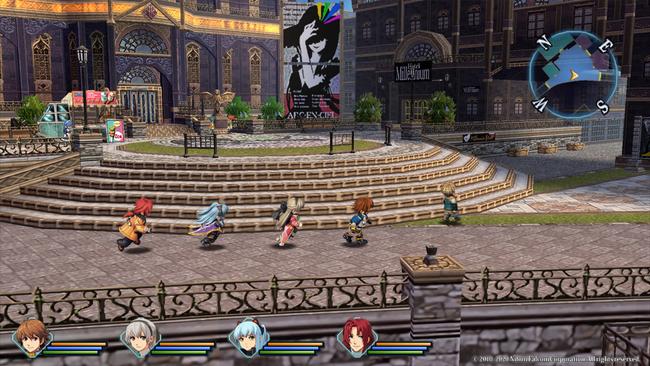
"At the end of the day, we have to consider the setting. It's Zemuria that comes first and informs everything else; [the way we've structured the Trails series] is that we have various countries in Zemuria, and our goal with each arc is to dig deep and explore the region in which it takes place. Zemuria as a setting, the core of it all - the framework for the story was decided from the beginning. Everytime we tackle a new arc, everytime we visit a new location, that's an opportunity for us to really explore what each region brings to the greater picture. What types of characters appear; if it's a later arc, which characters make sense to return, and when?" As Kondo says it, there's a give and take regarding the core of the series' story - what Zemuria is, where it's heading - and each arc is an opportunity to refine exactly how the narrative will evolve on the way to its inevitable conclusion.
"Bluntly speaking, if we tried to put out [a game like Trails beyond the Horizon] at the start of the series, Trails would've never existed to begin with. The project would've collapsed."
Even now, striking that balance is a constant battle. Yet at its core, it's just one part of a seemingly endless war within the company to keep things running at a steady clip. To that end, Kondo stresses that while Falcom has records of all of the regions, characters and terminology of Zemuria - what's far more valuable is the workers who in many cases have spent over a decade working on Trails as a whole. The most important task Kondo is faced with? Making sure that none of Falcom's invaluable workforce feel the need to leave.
"If a person were to quit the company who has been working on the Trails series for so long, it would cause a great amount of damage to the team and our projects, having lost that invaluable knowledge. So it's not so much just resource management - maintaining records of key aspects of the series' lore, the game world, the encyclopedia of what the Zemuria is. At the end of the day it's more like personnel management. How can I keep staff motivated, and how can I keep them interested in their work?" It's inevitable that staff will begin to feel burnt-out without considering their creative needs, especially when Trails has had nearly yearly releases for over a decade.
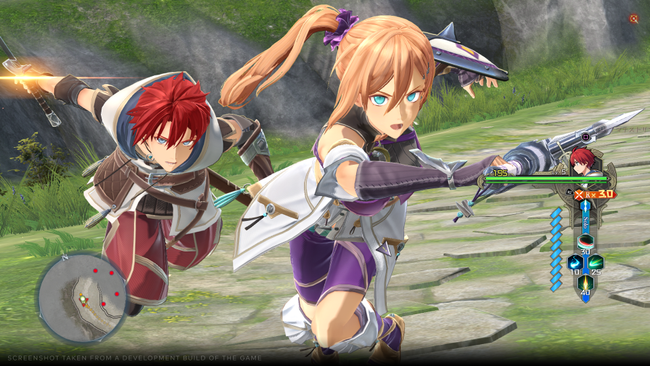
"Sometimes I have to let staff move over to another project that isn't Trails, to give them some time to refresh their creative battery for when they're truly needed." Yet, on the other end of the spectrum is a completely different problem: "Conversely, since many of the core staff has been working on Trails since the very beginning - the way they look at the world is different. Sometimes what they want to add to a game might make sense to them, but wouldn't be immediately obvious to anyone else. There have been times where I've had them take a step back and consider the greater picture of who is playing Trails - especially for games tailored for newcomers."
The eagle-eyed among you may have noted a potential issue; Trails has become such an important pillar for Falcom, to the point where every decision the company makes is done with the franchise in mind. With the series entering its climax - how does Falcom balance both the creative needs of staff that desire other games to work on, and the inevitable future in which Trails is no longer Falcom's main concern, all alongside the ever-increasing workload that the series requires?
"At the end of the day, it all comes down to revenue." Trails brings in a certain level of revenue, which is obviously important to Falcom as a whole. Yet, perhaps even more important than the monetary returns from the series is the pride that comes from the games they work on. "One thing I've always told my staff is we want to make games with real value. Not in the monetary sense, but games that are precious to us as a team. That's the only way we can create works which will resonate with players."
.png)
Per Kondo, he feels that this balance - games that the team feels a deep connection to, that is reciprocated by the players - is best seen with Trails. Yet they're well aware that Trails will not continue forever. Kondo has even made statements alluding to his desire to finish up the series before its 30th anniversary, though he now cautions that he can't make any promises that's how things will turn out in the end. Regardless, the day in which Trails is finished isn't some nebulous future date, but an inevitable reality that the company is already preparing for.
"The Trails series won't continue on indefinitely, nor could it. So, we have to find the windows where we can start building up to what comes after. Opportunities for staff to create games and IPs that can build up to that day when Trails does end, so we're prepared. Games that maintain that balance between what our staff wants to make, and what players would want to play. Games like Tokyo Xanadu, and Ys of course - but also other existing IPs and new ideas we're considering. We have already planned the development of these projects, so that we can release them, build up a fanbase, and ultimately be prepared for the eventual day when Trails is finished."
As far as Kondo sees it, striking that balance is his real job as President. Making sure that Falcom can continue releasing games like Ys, and Trails - while at the same time building up franchises like Tokyo Xanadu, and whatever new and existing IPs that are in store for the company's future without Zemuria. Yet, even with those plans, there are times where the realities of development necessitates flexibility within games not tied to new or legacy IPs.
"One aspect of that balancing act is knowing that staff may have these ideas that they want to explore, but at the end of the day - the latest Trails release needs to get done." Things like minigames, or even the books that Trails fans are all too familiar with have been opportunities for Falcom to let staff tackle new challenges, and to train new recruits on the company's tools in a way that won't impact core development of each game. If a designer has an idea, these minigames can be a creative outlet for them to scratch that creative itch. It just so happens it's an excellent way to train new programmers, at the same time.
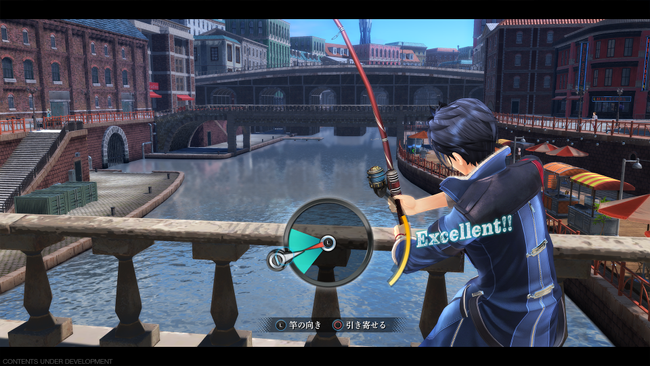
For example, fishing in Trails through Daybreak II and Trails beyond the Horizon was the work of an at-the-time new staff member, and was originally meant to debut with the original Trails through Daybreak. The same is true for the writing staff; Books, and in Calvard's case the movie scenes, have been at times both an outlet for existing writing staff to get their ideas on paper, and for new staff to get warmed up. A more extreme example of this is actually not even Trails, but Ys X: Nordics - while the main story was handled by Kondo himself, the game's sidequests featured a unique setup. Different writers were assigned to each Island in the game, and they were in charge of deciding what events would transpire there. Of course, for anyone who has played Ys X, an obvious question emerges - who handled Nanna's island, which dwarfed every other sidequest in terms of scope? Was it a veteran writer, or somebody new to the team?
"Actually… Well, my secretary wrote that one." With a dry chuckle, Kondo beams with pride. "While I gave her some instructions about writing composition, she got really into it! So unintentionally, it morphed into this grand idea. So now she's a secretary, and also a writer." Unsurprisingly, both in Japan and abroad her Island has quickly become a fan favorite. If the opportunity presents itself, and it's her desire, he'd love to give her a chance to contribute to writing again. If nothing else, her experience is what he always hopes for when staff are given these opportunities,
"As far as I see it, giving staff ownership of something unique in a project is the ideal - it gives you the motivation to pour your all into developing that part of the game, not to mention when it came to Ys X it saved me the workload of writing additional stories for sidequests on top of my work on the main narrative. When reception is so positive, such as in this case, it energizes everyone on the team going forward."
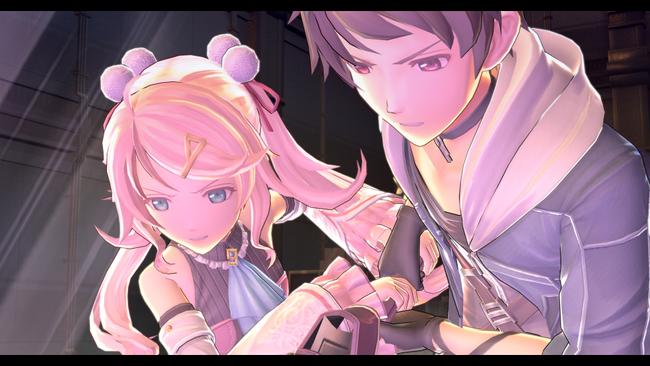
While the realities of Trails limit the scope of similar tasks, it's no secret that many of the characters originally started life within the in-universe books. Many times it turns out that they were inspired by real people that show up as characters, some even party members, in later games. Surprisingly enough; this was never directly the team's intention, but rather a natural result of ideas that started in books becoming accepted, and refined after input from the rest of the team. Surprisingly enough, Kondo sees it as a cultural artifact of sorts that has been passed down throughout the years he's been at the company.
"This honestly isn't something that even started with Trails, but rather the entries in The Legend of Heroes franchise that were released directly before Trails, the Gagharv Trilogy. In [The Legend of Heroes III: Prophecy of the Moonlight Witch], there was a novel about a skilled swordswoman, and everybody loved it. After that, she later appeared in [The Legend of Heroes IV: A Tear of Vermillion] as a character. It set a precedent."
Kondo has never shied away from the fact that when he started at the company, it was as a fan of the Gagharv Trilogy, and he's far from the only one on staff with a similar love of the games. In that vein, the current team has borrowed that element of the games they loved, and made it a custom of their own projects - finding ways to introduce characters, even if they were never truly intended to be part of Trails to begin with. It's this same love and respect for the games they've worked on, and their own experiences as prior fans of the company, that has in turn made the team internalize the weight of making sure that Trails ends in a way that everyone can be satisfied with.
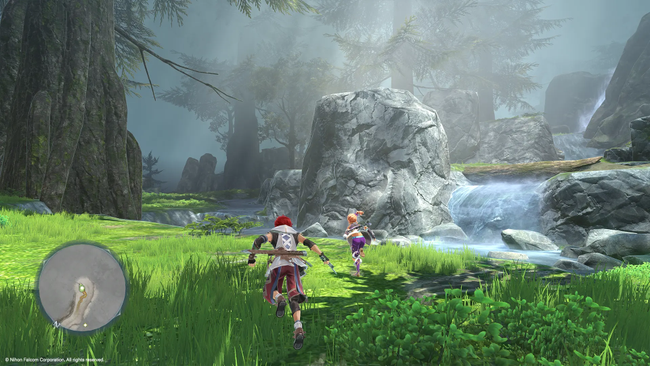
To that end, they're slowing things down. This year in Japan, instead of a follow-up to Trails beyond the Horizon, Falcom is releasing an upgraded Ys X -Proud Nordics- and a ground-up remake in Trails in the Sky 1st Chapter. That Trails beyond the Horizon heralds the beginning of the series' final stretch is more than just intuition from fans, and Falcom wants to give each game going forward the time and care that a series like Trails deserves. "Up until now, we've been running on inertia. Now, as we reach the end, we want to take things more slowly." They want to give themselves the chance to be more careful when deciding how the story proceeds from here. "Even if the series ends up reaching 20 interconnected games, which is unprecedented for the gaming industry - we want to take matters seriously."
While Kondo can only speak for Falcom, he notes that the team intends for games to be released at a slower pace moving forward. One could easily read between the lines and see new releases and remakes perhaps dropping on staggered years; otherwise, games like the previously announced Tokyo Xanadu sequel or the alluded additional projects may take their spot. Perhaps a mix of both. While this means that fans will have to wait longer between each release, Kondo at least foresees a silver lining; the longer waits between entries should hopefully afford the localization teams they partner with more leeway to release Falcom's games closer to their Japanese release, much like how Trails in the Sky 1st Chapter is set to launch across the world on the same date.
At the end, it all comes back to the same core truth - Trails as a series has gone on for over 20 years, across 14 different games. With the ending now visible in the distance, the team understands that now is the hardest and most essential work of their careers. They can't afford to mess it up. Or, as Kondo states bluntly: "If we ruin the ending, then it may as well become the worst series in the world. There's no coming back from that."
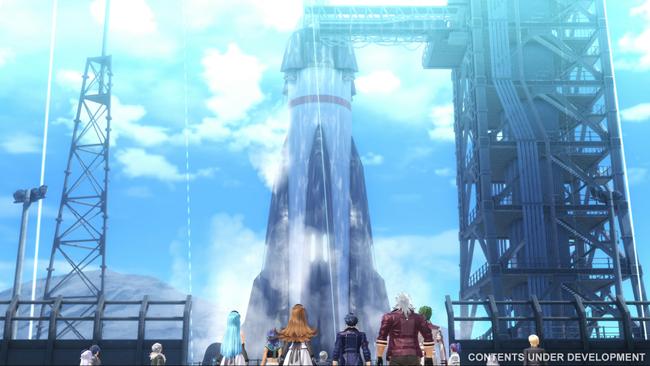
For both Trails, and Falcom as a whole, they've crossed the event horizon. What awaits in the future all depends on the choices they've made, and the execution. This may well end up being the company's greatest challenge, and will determine Falcom's legacy; yet something tells me things will be just fine. The team has already accomplished the impossible, and if anyone can stick the landing, I want to believe it's them. For now, though, we'll just have to wait and see.
The Legend of Heroes: Trails beyond the Horizon launches in North America and Europe on January 15, 2026 for PlayStation 4, PlayStation 5, Nintendo Switch, Nintendo Switch 2 and PC (Steam).